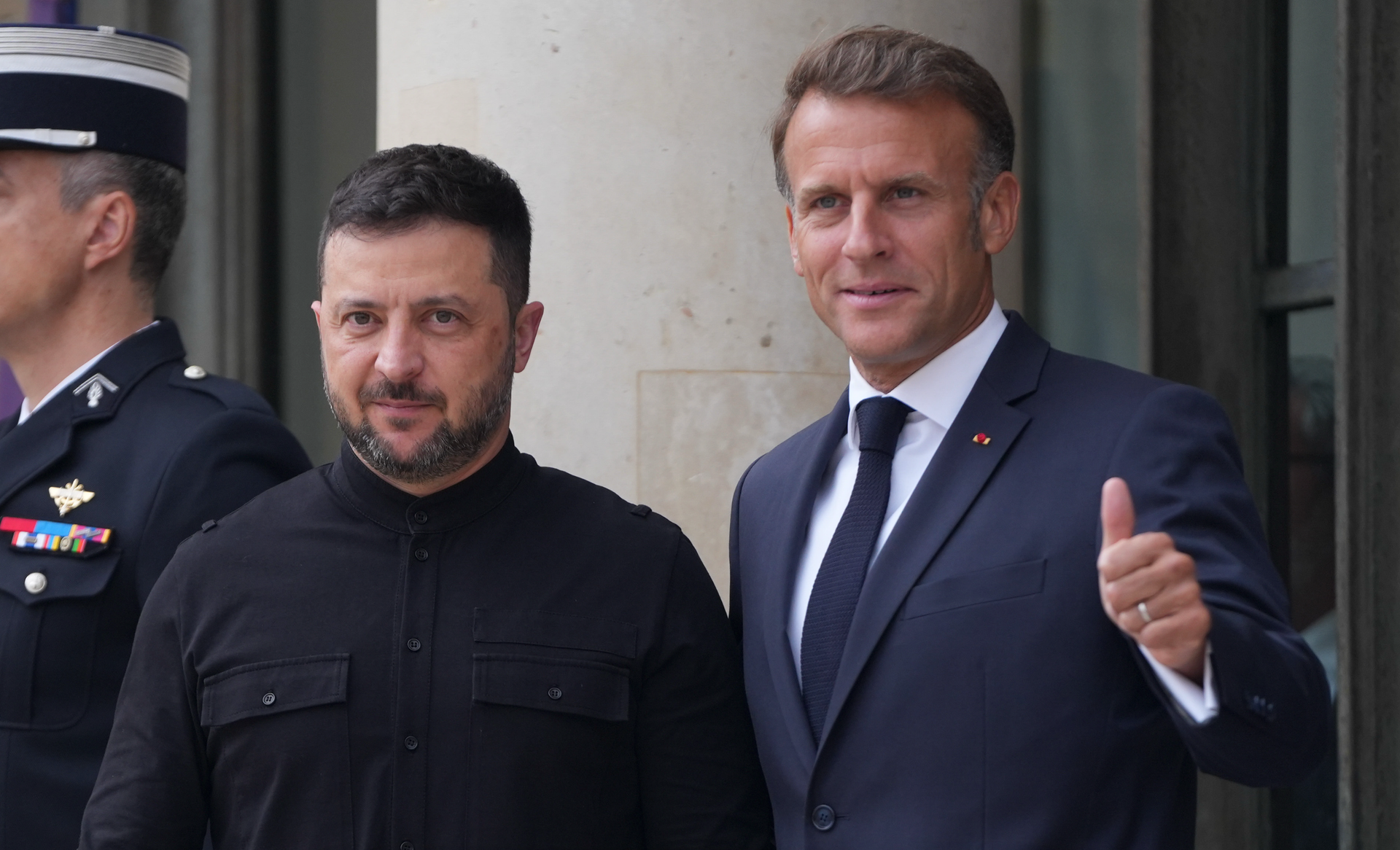Ukraine war latest: Ukrainian drones strike Russia's largest Rosneft refinery in Ryazan

Key developments on Sept. 5:
- Ukrainian drones strike Russia's largest Rosneft refinery in Ryazan, hit oil processing unit, military says
- Amid Russian economy warnings, Putin admits Central Bank 'struggling' to cut interest rates
- Ukrainian, Slovak leaders disagree over Russian pipeline attacks at top-level meeting
- Foreign troops in Ukraine would be 'legitimate targets for destruction' by Russia, Putin warns
- Ukraine's security guarantees must start 'without waiting for fighting to end,' Zelensky says
Ukrainian drones struck multiple Russian oil facilities overnight on Sept. 5, including Russia's largest Rosneft refinery in Ryazan and an oil depot in occupied Luhansk Oblast, Ukraine's top drone warfare commander Robert "Madyar" Brovdi reported.
"Gasoline (in Russia) is becoming scarce, while gas and oil are quickly running out," he wrote.
Residents of Ryazan, a city 180 kilometers (120 miles) southeast of Moscow, told Russian pro-government media outlet Shot that they heard explosions around 2 a.m., followed by a blaze that lit up the sky.
Photos and videos circulating on social media appeared to show a large fire and thick black smoke rising from the refinery, located on the southern edge of the city.
According to Ukraine's General Staff, the ELOU-AVT-6 primary oil processing unit, with an estimated annual capacity of 6 million tons, was hit.
The plant, which has a capacity of 13.8 million tons per year, was previously struck by Ukrainian drones on Aug. 2, forcing two of its three main refining units to halt operations.
Ukraine's military said the facility plays a role in supporting Russia's armed forces.
Amid Russian economy warnings, Putin admits Central Bank 'struggling' to cut interest rates
Lowering the Central Bank's key interest rate too quickly could result in rapid price hikes, Russian President Vladimir Putin said on Sept. 5 at the Eastern Economic Forum in Vladivostok.
The remark follows growing concern among top officials over Russia's economic slowdown.
"I'm sure many people sitting in this room will say 'yes, this is outrageous, it's impossible, the key rate needs to be cut sharply.' But then prices would rise," Putin said. "Price increases are, in a sense, inflation."
"The Central Bank is struggling to combat this inflation and aims to return to desirable indicators."
German Gref, head of Russia's biggest bank, Sberbank, said on Sept. 4 that the country has entered "technical stagnation," warning that the current 18% interest rate must fall closer to 12% to spark recovery.
Russia's annual inflation slowed to 8.8% in July, down from 9.4% in June, though it remains above the Central Bank's 4–5% target range, with the largest price increases seen in food and services.
Ukrainian, Slovak leaders disagree over Russian pipeline attacks at top-level meeting
President Volodomyr Zelensky said on Sept. 5 that Ukraine would not stop responding to Russian attacks on its energy infrastructure after Hungary and Slovakia asked Kyiv not to attack a Russian oil pipeline.
Zelensky made the statement after a meeting with Slovak Prime Minister Robert Fico in Uzhhorod, a regional capital in western Ukraine.
The meeting followed Ukrainian strikes in August on the Druzhba oil pipeline, which supplies Russian crude to Hungary and Slovakia.
Zelensky also said that Ukraine is ready to supply gas and oil to Slovakia as long as it is not Russian gas or oil. He added that "Russian oil, like Russian gas, has no future."
"We had a meaningful conversation. It is important that we have this dialogue. We will continue it", Zelensky said after the meeting with Fico.
Fico said at a briefing with journalists after the meeting that Ukraine and Slovakia have "diametrically opposed views" about energy.
"I said that I respect (the Ukrainian) president's point of view but I also expect you to respect our views," Fico said.
Foreign troops in Ukraine would be 'legitimate targets for destruction' by Russia, Putin warns
Foreign troops on Ukrainian soil would be considered "legitimate targets for destruction," and their deployment would be unnecessary if a peace deal is reached, Russian President Vladimir Putin said on Sept. 5 at the Eastern Economic Forum.
His remarks come as Europe intensifies talks on security guarantees for Kyiv in case of a ceasefire or peace deal, with proposals to send foreign troops to prevent another possible Russian invasion.
"If any troops appear there, especially now, during the fighting, we assume that they will be legitimate targets for destruction," Putin said. "And if decisions are reached that will lead to peace, to long-term peace, then I simply see no point in their presence on Ukrainian territory."
Kremlin spokesperson Dmitry Peskov echoed this stance, saying foreign contingents could not provide Kyiv with security guarantees.
Ukraine's security guarantees must start 'without waiting for fighting to end,' Zelensky says
Security guarantees for Ukraine must be implemented immediately, President Volodymyr Zelensky said on Sept. 5 at the Cernobbio Economic Forum, Italian broadcaster Rai reported.
His remarks follow a Sept. 4 summit of the so-called "Coalition of the Willing," where Zelensky and European leaders discussed plans for a multinational reassurance force and commitments of weapons, logistics, and training to shield Ukraine from future Russian aggression.
Current proposals envision these measures taking effect only after a ceasefire. Russia has repeatedly said that it has no intention of ending its war against Ukraine short of total victory.
"The first step to ending any war is a ceasefire," Zelensky said. "If pressure increases, not decreases... if there are security guarantees and sanctions, this will naturally push him (Russian President Vladimir Putin) in the right direction."
Zelensky added that the guarantees must be implemented "without waiting for the end of the fighting" and stressed that they include not only military support but also economic assurances.
Ukraine has warned that without binding guarantees, Russia could regroup and launch a new offensive, while the Kremlin has signaled it wants any peace deal to include deep cuts to Ukraine's armed forces.











